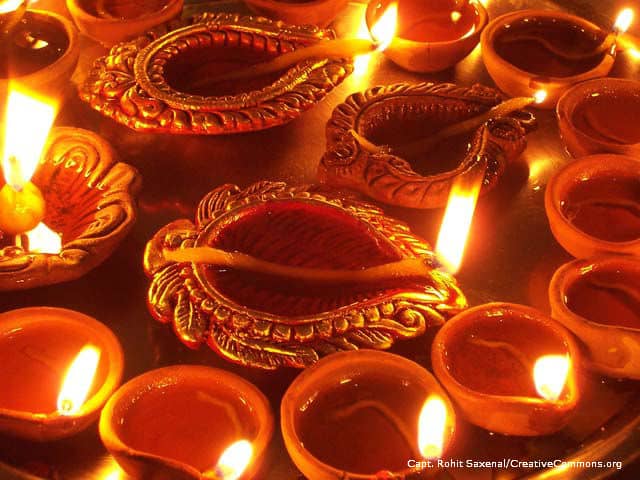The baths will begin on Tuesday and are the focus of a 43-day religious festival expected to bring 65 million people to Allahabad, about 360 miles southeast of New Delhi.
Hindus believe they can wash away their sins - speeding their achievement of nirvana - by taking sacred baths at the time of the Kumbh Mela, which occurs every 12 years.
Hundreds of thousands of tents have sprung up along the sandy banks of the Ganges.
Hindu priests and holy men arrived from throughout the country wrapped in traditional orange robes and turbans. Hermits, with scraggly beards and threadbare clothes, came out of the hills to join the throng.
Women came with bright saris, some of them with their heads shaved as a sign of devotion.
None was as eye-catching, however, as the 20,000 naked holy men called Naga Sadhus, their torsos smeared with paint and ash.
Those who gathered in Allahabad ahead of the festivities chanted prayers on Monday and made offerings to prepare for the first bath. Radios blasting religious songs competed with Hindu scriptures chanted over megaphones.
Authorities prepared for possible stampedes by setting up 35 temporary police stations and 12 hospitals.
Paramilitary troops assisted by the army and air force will be on alert 24 hours a day against terrorist attacks, authorities said. Metal detectors, closed-circuit TV, a special bomb disposal unit, and plainclothes policemen were in place.
Adding to fears of unrest, a Hindu nationalist organization affiliated with the governing Bharatiya Janata Party plans use the festival to announce the date for building a controversial temple on the site of a demolished Muslim mosque.
The demolition of the mosque at Ayodhya, 340 miles east of New Delhi, in December 1992 by Hindu nationalists sparked religious riots that killed 2,000 people across India.
The congregation of so many people in one place ``is an easy and soft target for terrorists,'' said Allahabad district commissioner Sadakant, who uses only one name.
A computer system has been set up to trace the hundreds of people, especially children, who might get lost in the massive crowds. Their pictures will be flashed on television screens to help reunite them with their parents.
In Hindi, ``kumbh'' means pot and ``mela'' means fair. The festival derives its name from a mythical fight over a pot of nectar.
According to Hindu mythology, gods and demons who were waging a war realized they needed holy nectar to achieve immortality.
One of the gods made off with the pot, spilling drops on 12 spots, four of them in India and the rest in the heavens. The festivals are rotated among the four spots: Allahabad, Nasik, Ujjain and Hardwar.

